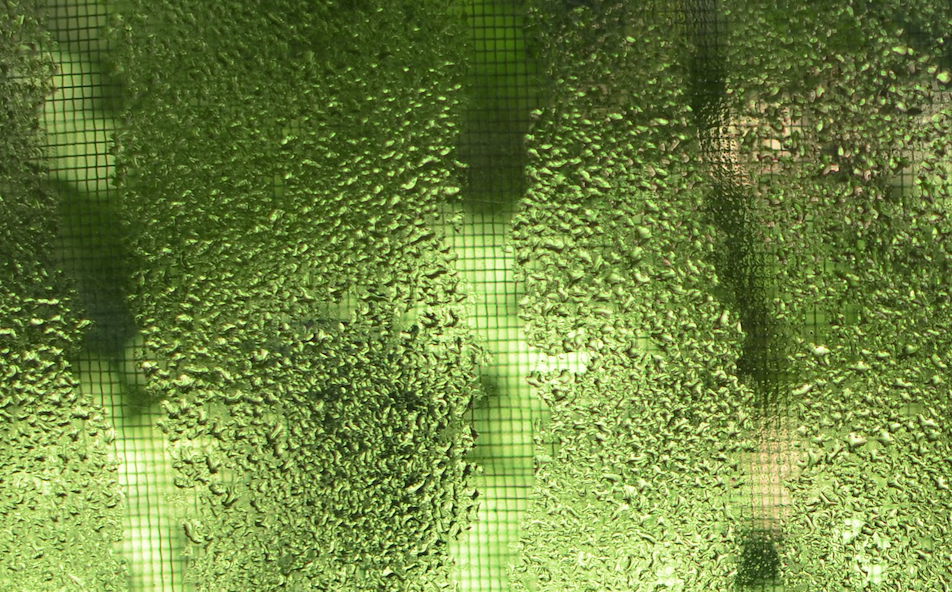 By Bill Dawson
By Bill Dawson
Texas Climate News
As climate scientists’ consensus about human beings’ harmful impact on the earth’s climate system solidified in the mid-to-late 2000s, one group of weather specialists was not on board – an outspoken and evidently sizable contingent, at least.
That group was broadcast meteorologists, a good number of whom were not shy about proclaiming their skepticism about the conclusion that pollution is disrupting the climate, even their hostility to the idea.
Some TV weathercasters in Texas were outspokenly among this skeptical band, most prominently Neil Frank, a respected expert on tropical storms who headed the National Hurricane Center before an on-air job at Houston’s KHOU-TV from 1987-2008 earned him local celebrity.
Frank, for example, told the Washington Post in 2006 that the very concept of man-made climate change was “a hoax,” though the Post did not report who he thought was doing the alleged hoodwinking, if he had named such a culprit.
Now retired, Frank was still speaking out skeptically about human-caused climate change as recently as last fall in a letter to the Houston Chronicle. But a new nationwide survey of broadcast meteorologists, led by researchers at Virginia’s George Mason University, found skepticism is apparently falling among individuals currently working as forecasters for television stations.
Some of the points that researchers identified as key findings of the survey, which drew responses from 464 broadcast meteorologists including several dozen in Texas:
- More than 9 in 10 TV weathercasters have concluded that climate change is happening.
- Of TV weathercasters who have concluded that climate change is happening, nearly 9 in 10 think human activity is at least partly responsible over the past 50 years, although they underestimate the extent of the scientific consensus on human-caused climate change.
- Most TV weathercasters think that climate change has influenced the weather and other conditions in their area over the past 50 years, and even more think climate change will influence the weather in their area over the next 50 years.
- Nearly 7 in 10 TV weathercasters think it is appropriate for them to report the science of climate change to their audience, at least in some venues.
- More than 90% of TV weathercasters think that their audience is at least somewhat interested in learning about the local impacts of climate change, although only 2 in 10 see their audience as highly interested.
In a blog post on the website of the American Geophysical Union, a 62,000-member scientific organization, Maryland TV meteorologist Dan Satterfield said the survey’s findings reflect his and others’ experiences:
A new study by George Mason University shows something that a lot of us who work in broadcast meteorology have noticed – the rapid disappearance of climate-change deniers among TV weathercasters. I’m not the only one who has noticed it, because I frequently hear talk about it from colleagues at various conferences. It’s very rare to hear ridiculous pronouncements about climate change from TV weathercasters these days, but it was far different just a few years ago. It actually got so bad, that a group called Forecast the Facts took to publicizing some of the most egregious ones, eliciting howls of protests by those who disagreed with the consensus opinion.
Various efforts have been made in recent years to inform TV meteorologists more fully about climate scientists’ consensus concerning climate change, since weathercasters traditionally serve as one of the principal groups communicating weather and climate information to the public.
Some weathercasters have university degrees in meteorology, but some do not have such a degree or a training certificate from the American Meteorological Society, which collaborated with George Mason on the survey. Other partners were the nonprofit Climate Central research and reporting organization, NASA, the National Oceanic and Atmospheric Administration and Yale University.
As Satterfield noted, TV weathercasters sometimes have used the platform afforded by their positions as broadcast personalities to argue against the consensus of climate scientists.
For instance, one time that happened was in 2007, on the heels of a sweeping report by the U.N.’s Intergovernmental Panel on Climate Change that declared atmospheric warming was “unequivocal” and humans’ greenhouse-gas pollution from fossil fuels was the “very likely” cause of most of it since the mid-20th century.
Later that year, the three weathercasters for KLTV in the Tyler-Longview-Jacksonville region of Northeast Texas delivered an on-air rebuttal. One said flatly that humans had nothing to do with the warming trend and another suggested that climate scientists were spreading the idea of manmade climate change because they were after “grant money.”
In his letter to the Houston Chronicle last October, Frank questioned the accuracy of computer models used to project climate trends influenced by greenhouse emissions, which he alleged have produced “alarmist” results. He also said petroleum-based industries crucial to the U.S. and Houston economies would be “seriously impacted” by proposals to reduce those emissions.
That argument stands in dramatic contrast to the current official statement of the American Meteorological Society on climate change, which includes this passage:
There is unequivocal evidence that Earth’s lower atmosphere, ocean, and land surface are warming; sea level is rising; and snow cover, mountain glaciers, and Arctic sea ice are shrinking. The dominant cause of the warming since the 1950s is human activities. This scientific finding is based on a large and persuasive body of research. The observed warming will be irreversible for many years into the future, and even larger temperature increases will occur as greenhouse gases continue to accumulate in the atmosphere. Avoiding this future warming will require a large and rapid reduction in global greenhouse gas emissions. The ongoing warming will increase risks and stresses to human societies, economies, ecosystems, and wildlife through the 21st century and beyond, making it imperative that society respond to a changing climate.
Image credit: Texas Climate News
